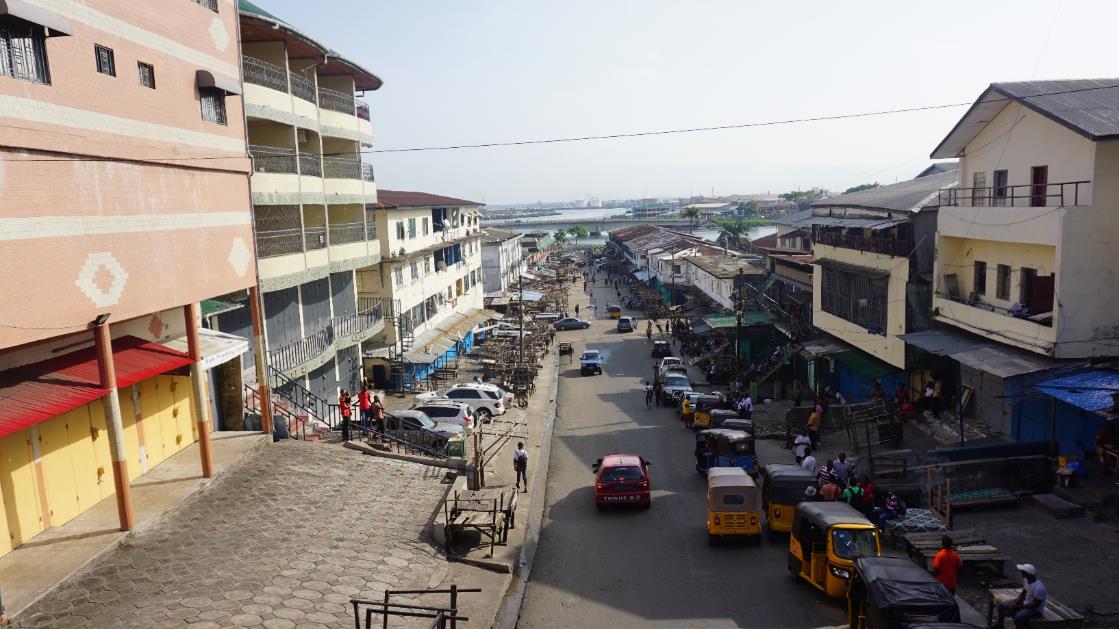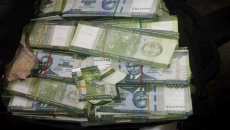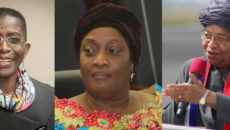During the week of April 10, 2017, a coalition of business organizations, under the umbrella of the Patriotic Entrepreneurs of Liberia, staged a protest aimed at ceasing commercial activities in order to draw attention to issues facing business owners.
Protestors called on the government to address the following issues: the continuous hiking of the U.S. Dollar against the Liberian Dollar, the high tariff and incidental tariffs being placed on Liberian businesses, petty traders having their goods seized, high municipal taxes and garbage fees, the need for Liberians to be given exclusive retailing rights, and a call for the Commerce Ministry to open Import Permit Declaration for Liberians to import sugar, rice, and other products.
The April strike was a sequel to a similar three-day slowdown that ended on Feb. 2, 2017. The widely successful February protest had attracted the government’s attention and saw the president convene a meeting with her Economic Management Team to address some of the issues. She also met with business organizations, although leaders of PATEL, as the group calls itself, were not invited.
However, there appeared to be no concrete or long-lasting actions taken by the government to address the issues raised by the protestors. The president banned all her top-level officials from traveling outside the country for 60 days without approval, in what appeared to be an attempt to stem the flow of foreign currency out of the country and limit the local demand for the U.S. Dollar. However, if the committee convened by the president came up with any recommendations, they were not publicized by the government.
PATEL, sensing that its calls went unheeded, called for the April protests. The group’s second attempt was unsuccessful, as many businesses eventually opened the shops. PATEL was forced to call off the protest.
PATEL’s protest was unsuccessful not because its aims were not urgent or serious enough. Far from it. After all, figures from the Central Bank of Liberia show that the Liberian Dollar has been depreciating at an increasingly fast rate against the U.S. Dollar, having depreciated by 15.8 percent over the course of 2016 – a rate not seen during President Ellen Johnson Sirleaf’s entire presidency. In 2017, the depreciation does not show any signs of slowing down.
Additionally, the economy’s overdependence on commodity exports proved to be a weakness during the recent dip in commodity prices and the Ebola outbreak. Most Liberians are still not reaping the rewards of the celebrated billions of dollars of foreign direct investment this regime has brought into the country.
Moreover, access to credit is still an issue, making it difficult for entrepreneurs to grow and scale their businesses.
While there are fundamental issues with the economy that need addressing, PATEL miscalculated its strategy, and its leaders did a poor job of communicating their demands.
PATEL had written in one of their pamphlets that the protest would last “until the president of the Republic of Liberia can speak and take action in addressing the plights of the business community.†It is unreasonable to expect ordinary marketers and petty traders to keep their stores or operations closed for an indefinite period. Most depend on the marginal profits they’re able to make for survival.
Moreover, even for larger stores whose owners do not necessarily depend on their day-to-day profits and could weather a few days of no sales, they still lose so much in damaged and expired inventory.
Asking much from people without there being a certainty that the strike would make a tangible impact or even without letting them know of the long-term game plan was unreasonable and unfair. PATEL’s request showed a lack of foresight on its leaders’ part and insensitivity to the plight of petty traders and shop owners alike.
Moreover, the group took several positions that are simply unfair or infeasible, the worst being the attack on foreign merchants by requesting that Liberians be given exclusive retailing rights. The organization could have seized the opportunity to partner with the much more powerful foreign merchants and ensure that they achieve what are likely to be similar goals.
PATEL’s demands were, objectively speaking, sometimes unclear. It wasn’t clear what the organization was requesting the government to do. A better framing of the demands would have allowed these issues to be more easily understood.
Even the slight modifications on the demands from one pamphlet to another was a source of critique from the government, which claimed that the organizers were constantly changing their demands and making it difficult for the government to address them.
An example where PATEL could have better articulated its demands was the issue of petty traders having their goods seized. Did the organizers want the government to abandon its reasonable goals of trying to decongest streets and keep petty traders in markets? It wasn’t clear.
Again, with the issue of the “high and incidental†tariffs on Liberian businesses, what would be considered low tariffs? And should tariffs be reduced across the board or just for particular goods? One can see how difficult it could be for the government to address this issue in a way that the protestors would be satisfied.
Besides just being vague, the importance of some issues was not emphasized. Stating that the Ministry of Commerce and Industry should “open IPD for Liberians†to import certain goods like sugar and rice may not get the attention of ordinary Liberians who might not understand the process of Import Permit Declaration.
Most of all, it didn’t help that PATEL’s leaders are generally not viewed as widely respected businesspeople. While the group seemed to be addressing many issues pertinent to ordinary Liberians, and it was important that it maintained its everyman appeal, it would have helped their case to recruit a universally respected spokesperson with the gravitas to negotiate behind closed doors with government officials.
With all that being said, the organization has brought to the forefront serious issues that every Liberian politician should be paying attention to. While PATEL’s second protest may not have been successful, the issues are all too real and if not addressed, will surely be brought to the forefront again in some other form of protest. Hopefully, the next protesters can learn from the mistakes of PATEL to better achieve their goals.
Featured photo courtesy of Zeze Ballah



